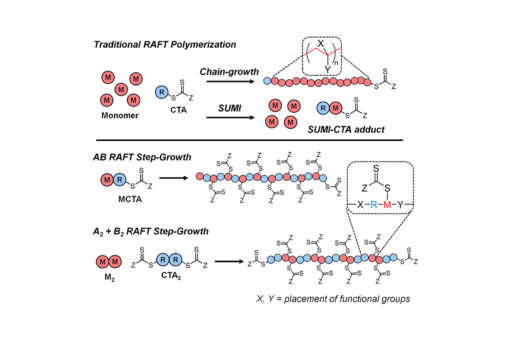Step-growth polymerization by the RAFT process
Abstract
Reversible Addition-Fragmentation Chain Transfer (RAFT) step-growth polymerization is an emerging method that synergistically combines the benefits of RAFT polymerization (functional group and user-friendly nature) and step-growth polymerization (versatility of the polymer backbone). This new polymerization method is generally achieved by using bifunctional reagents of monomer and Chain Transfer Agent (CTA), that efficiently yield Single Monomer Unit Insertion (SUMI) adducts under stoichiometrically balanced conditions. This review covers a brief history of the RAFT-SUMI process and its transformation into RAFT step-growth polymerization, followed by a comprehensive discussion of various RAFT step-growth systems. Furthermore, characterizing the molecular weight evolution of step-growth polymerization is elaborated based on the Flory model. Finally, a formula is introduced to describe the efficiency of the RAFT-SUMI process, assuming rapid chain transfer equilibrium. Examples of reported RAFT step-growth and SUMI systems are then categorized based on the driving force.
Citation
Tanaka, J., Li, J., Clouthier, S. M., & You, W. (2023). Step-growth polymerization by the Raft Process. Chemical Communications, 59(53), 8168–8189. https://doi.org/10.1039/d3cc01087b


